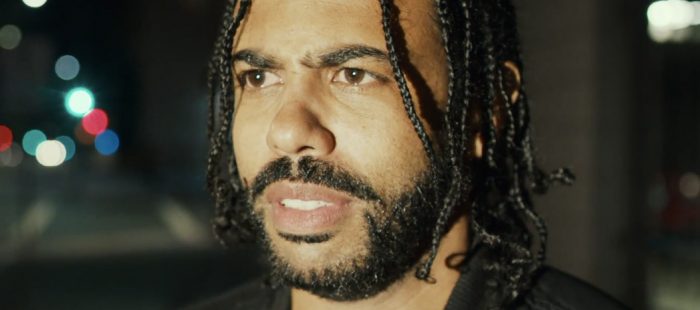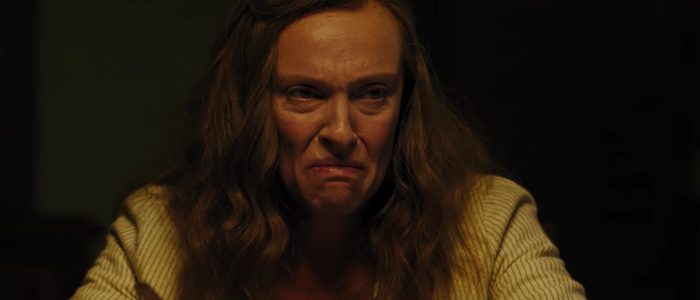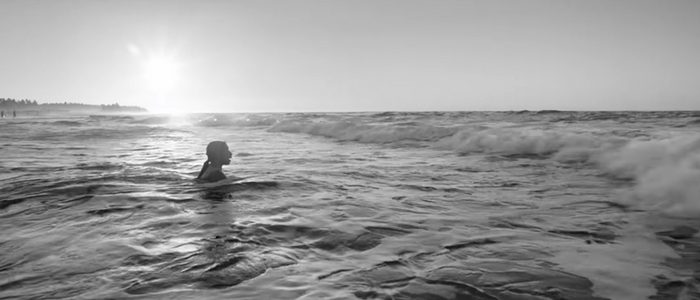Chris Evangelista's Top 10 Movies Of 2018
Several people have told me they thought 2018 was a disappointing year for movies. I say: nuts to that. Any year that gives us Nicolas Cage fighting with a chainsaw, Ethan Hawke having a crisis of faith, and Rachel Weisz, Emma Stone and Olivia Colman in a power-grabbing love triangle is a-okay in my book. Below you'll find my top 10 movies of the year – a list I struggled with, because there were so many films competing to make it into these top spots. In addition to the 10 below, let me just throw an honorable mention shout-out to the following titles: Burning, Widows, Suspiria, BlackKklansman and The Sisters Brothers. Now, onto my top 10 movies of 2018.
10. Blindspotting
I'm not sure why more people aren't talking about Carlos López Estrada's Blindspotting, but perhaps it just got lost in the shuffle. This timely drama tells the tale of two friends: Collin (Daveed Diggs, who should be a huge movie star by now) and Miles (Rafael Casal). Collin only has three more days left on probation, and as long as he doesn't get in any trouble, he should be good to go. The problem is Miles has a temper, and tends to get the duo into sticky situations – and Collin is too loyal to cut his old friend loose. In the midst of all this, Collin witnesses a white cop gunning down a black man, triggering PTSD in the process. Blindspotting flows with ease, featuring scenes where Collin and Miles break into freestyle rap in the midst of their dialogue. That may sound strange, or forced, but the stellar performances from Diggs and Casal make it work. Blindspotting is telling an important story with social commentary, but it never leans heavily on that – it instead lets the story unfold almost casually, sweeping us up along with it, until things come to an explosive head. It's raw, powerful and unforgettable.
9. Hereditary
Ari Aster's Hereditary grafts a family drama narrative onto an absolute nightmare, with remarkable results. What at first seems like a meditation on grief slowly reveals itself to be a story that's really about the cruelty of fate. The characters in Hereditary are little more than helpless puppets, unable to break free of their strings. Toni Collette delivers one of the year's best performances as a woman dealing first with the death of her mother, whom she was estranged from, and then the sudden, violent death of her young daughter. These two deaths send the entire family into chaos, with Collette's son (an incredible Alex Wolff) is tormented and attacked at every turn. It culminates in a ghoulish, darkly comedic, blood-soaked conclusion from which is there is no escape.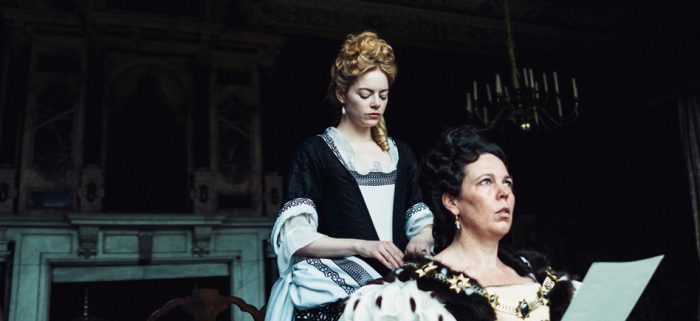
8. The Favourite
Barry Lyndon meets Mean Girls in Yorgos Lanthimos' riotously funny The Favourite. Confession: I don't normally like Lanthimos' films (The Lobster, Killing of a Sacred Deer, and so on). I find them overly, needlessly cruel, with messages that simply boil down to "Life is shit!" He also has a tendency to brutally murder animals – something I can't stomach in movies, even though I know it's staged. And yet, The Favourite is a hoot. The film still has a cruel streak to it, but the cruelty feels somehow different; less malicious, and more comedic – similar to the way the Coen Brothers channel the harshness of life in funny ways. Olivia Colman shines as Queen Anne, who is something of a nervous wreck, inflicted with various ailments. As a result, England is really ruled by Anne's trusted advisor (and secret lover) Sarah Churchill, Duchess of Marlborough (Rachel Weisz, fiery as hell). It's a comfortable arrangement – at least for Sarah. But that changes quickly when Sarah's distant cousin Abigail (Emma Stone, very good, but a bit overshadowed by the work of Weisz and Colman) arrives, and starts working her way into the Queen's graces. The script, by Deborah Davis and Tony McNamara, presents all of this in darkly hilarious fashion, resulting in Lanthimos' best film to date.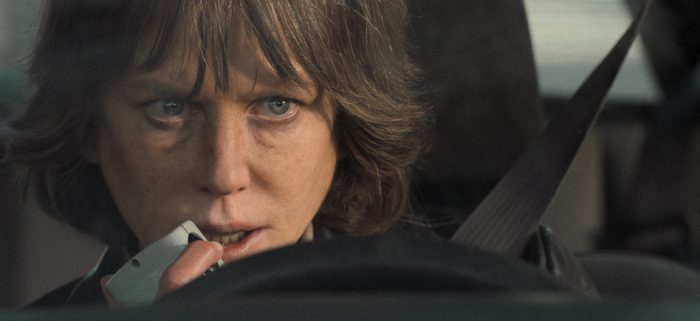
7. Destroyer
Nicole Kidman raises hell – and goes through it, too – in Karyn Kusama's brutal post-modern noir Destroyer. Kidman is playing the kind of sloppy, drunk, violent cop that's typically played by a male actor, and that might throw people off. But the results are stunning. Kusama is staging two films here: one is a violent crime drama about Kidman's cop Erin Bell trying to track down a killer. The other, set in the past, finds a younger, less-haggard Bell infiltrating a gang along with an FBI agent (Sebastian Stan). These two stories catch up to each other in a surprising, clever way. In the midst of all this, Bell deals with the fallout of her personal life, primarily her reckless, wild teenage daughter (Jade Pettyjohn). What easily could've been a generic cop thriller is transformed – in the hands of Kusama, and screenwriters Phil Hay and Matt Manfredi – into an intense, emotional experience that leaves you shaken.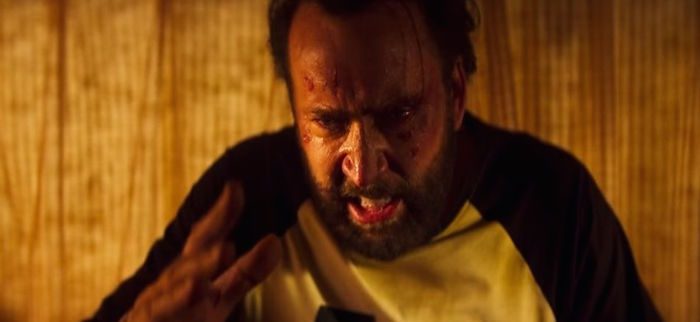
6. Mandy
Nicolas Cage faces off against "bikers and gnarly psychos and crazy evil" in Mandy, Panos Cosmatos' acid-trip joyride that rips your eyeballs out of your skull and leaves them dangling by the sockets. Awash in garish-yet-beautiful colors, this slice of cinematic black magic is, on the page, a simple tale of revenge. Cage's best girl Mandy (human chameleon Andrea Riseborough) suffers a cruel fate at the hands of a crazy cult, and Cage comes gunning for them. But Mandy isn't simple. It's intense, and strange, and ultimately haunting. You may think this is going to be another movie where Nic Cage acts nuts, but save for a few scenes, Cage is actually reserved here – delivering his best performance in years in the process. Cage's character travels over landscapes that look as if they've been plucked from fantasy comic books left out to mold in the rain, battling demonic hordes and drowning himself in blood in the process.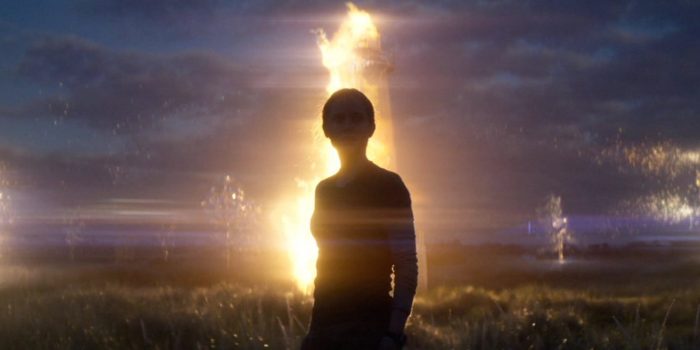
5. Annihilation
Annihilation was mostly ignored in U.S. theaters, and didn't even go to theaters in other countries. That's a damn shame, but not surprising. Alex Garland's challenging sci-fi saga is dealing with grief, regret and disease – not exactly your typical science fiction escapism that burns up the box office. Very loosely adapted from Jeff VanderMeer's novel, Annihilation follows a team of women (Natalie Portman, Jennifer Jason Leigh, Gina Rodriguez, Tessa Thompson, and Tuva Novotny) into an area that's been affected (or perhaps the right term is infected) by an alien anomaly. What they find there is both beautiful and horrifying – and often hard to describe. There are no easy answers here, and that's point. This trip into the unknown is about the journey, not the destination. Expect this to the type of film that's rediscovered years from now, and hailed as a misunderstood modern-classic.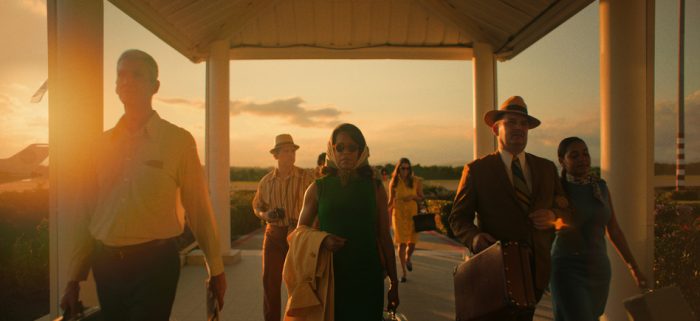
4. If Beale Street Could Talk
Barry Jenkins' Moonlight follow-up If Beale Street Could Talk is often heartbreaking and tragic, but it's ultimately hopeful, as well. "Trust love all the way," is one of the most powerful lines in the movie, and it serves as a mantra as well. Love may not be all you need, but to have it, and embrace it, and trust it, can be a powerful thing. In Beale Street, Tish (KiKi Layne) learns she's pregnant not long after her boyfriend Fonny (Stephan James) is locked up for a crime he didn't commit. Tish and her family (including her mother, played to perfection with warmth and strength by Regina King) set out to clear Fonny's name. As the story progresses, Jenkins – adapting James Baldwin's acclaimed novel – moves back and forth in time, to give us a glimpse of the happier life Fonny and Tish had before fate – and systemic racism – turned everything upside down. Boasting a lush, tear-inducing score from Nicholas Britell, and often dreamy cinematography from James Laxton, Beale Street once again solidifies Jenkins as a filmmaker to reckon with.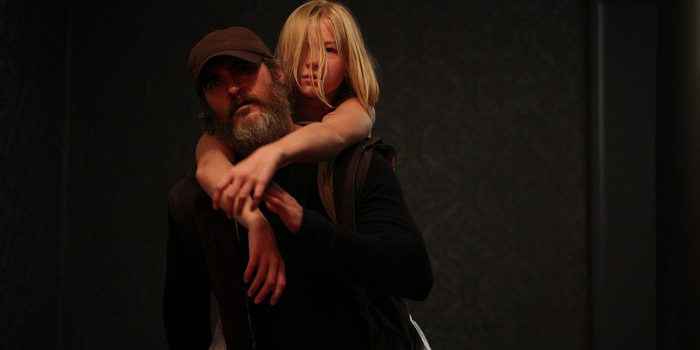
3. You Were Never Really Here
Abstract and illusive, Lynne Ramsay's You Were Never Really Here doesn't follow the rules. Ramsay and editor Joe Bini are out to subvert expectations, and deny the kind of catharsis that accompanies stories like this. Joaquin Phoenix – who is astonishing here, often using his body language in place of actual dialogue – is Joe, a hammer-wielding bruiser hired to rescue young girls. One of his cases backfires, though, leaving Joe to make a choice: he can cut and run, or he can attempt to do the right thing. Lots of people die along the way. But while the more Hollywood version of this story would involve Joe engaged in violent, bloody battles with his enemies, You Were Never Really Here uses precise, surprising edits to keep everything just out of view, to the point where we can't even be sure what we're seeing. In fact, we can't even be sure we're really here.
2. Roma
Alfonso Cuarón's Roma takes its time. Indeed, when I first saw the film at TIFF, I was unsure what to make of it for the first half-hour of its runtime. The Gravity filmmaker casually sets things up, introducing us to Cleo (Yalitza Aparicio), a maid working for a family (inspired by Cuarón's own family) living in Mexico City in 1970. The visuals are gorgeous and often breathtaking, with Cuarón shooting everything (in beautiful black and white) to resemble a tableau, with every inch of the frame filled. And as all of this unfolded, I thought: "Okay, this looks wonderful, but where is it going?" It felt inert. And then, little by little, Cuarón began to pull the rug out from under me, slowly revealing Roma's subtle power. The result was a masterpiece overflowing with empathy, meticulously crafted to leave you a sobbing mess by the time the credits roll (trust me).
1. First Reformed
"Will God Forgive Us For Destroying His Creation?" That's the question at the heart of First Reformed, Paul Schrader's modern-day love-letter to movies like Winter Light and Diary of a Country Priest. A blend of existentialism, theology, and apocalyptic panic, First Reformed has Ethan Hawke giving the best performance of his career as Toller, the pastor of a run-down, historic church in upstate New York. Toller goes about his priestly duties; he stands at the pulpit and recites the words to scarce audiences. But his faith has faded, and his nights are spent mixing booze with Pepto-Bismol to treat a stomach ailment. Toller is jolted from his malaise when parishioner Mary (Amanda Seyfried) comes to him for help. Her husband (Philip Ettinger) is in despair because of how rapidly the planet is succumbing to the effects of climate change. Listening to the young man's concerns triggers something in Toller's mind, almost as if the words themselves are a contagious airborne disease he's now caught. Schrader keeps us entirely within Toller's mind, via narration in a notebook he's writing. It traps us within his deteriorating mindset, leading to circumstances we can't even be sure are real, leaving it up to us, the audience, to decipher the meaning – and truth – behind a haunting, jaw-dropping ending.

